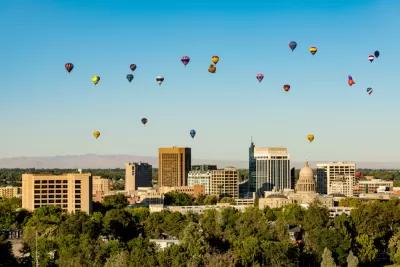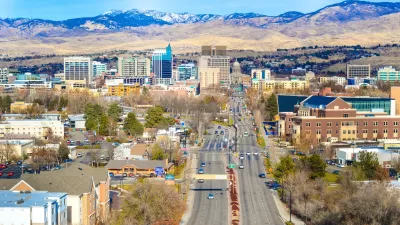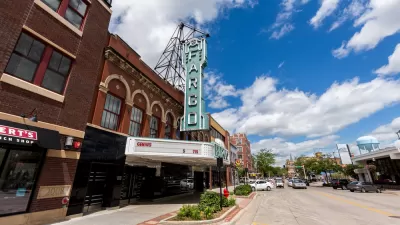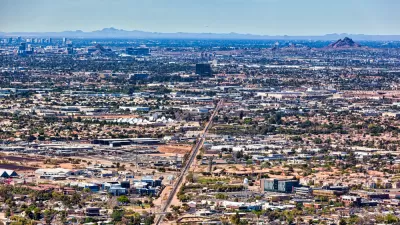An economist identifies the growth in nine U.S. cities—scattered from Utah to Texas, Arizona, Washington, and Idaho—as similar to the economic power generated in parts of Asia.

According to the premise of an article by Alan Cole, the 2017 GOP tax law and the COVID-19 pandemic opened an opportunity for cities offering "attractive amenities at more reasonable prices" compared to traditionally expensive cities like San Francisco and New York.
"Out of America’s 100 largest metropolitan areas, nine have experienced home price growth of more than 50 percent since late 2017 when the tax bill was signed into law," according to Cole, who then names Boise, Spokane, Austin, Phoenix, Tucson, Colorado Springs, Salt Lake City, Ogden, and Provo.
"These somewhat smaller metropolitan areas, largely located in the Mountain West, had a variety of advantages: reasonable prices, a growing high-tech economy, good weather or natural beauty, and relatively lower state and local taxes," according to Cole.
The cities were already on the upswing prior to 2017, but the changes since then have prompted Cole to compare the cities to the Asian Tiger economies of Hong Kong, Singapore, Taiwan, and South Korea.
"The nine American cities that I will call the Mountain Lion economies are playing an analogous role in contemporary American economic geography," writes Cole. "While they are generally too small to replace America’s largest economic hubs, and they are unlikely to become as expensive, they are nonetheless undergoing radical change and experiencing a rapid upswing in housing demand."
Cole also credits some of the growth in the Mountain Lion economies to overflow from expensive cities in California—namely, Los Angeles and San Francisco. Cole also builds a larger argument that includes an analysis of the characteristics of the Mountain Lion cities that provide long-term advantages—like beautiful natural environments, high quality universities, and cheaper housing than U.S. superstar cities.
FULL STORY: The Mountain Lions: these nine cities boomed in the COVID era

Planetizen Federal Action Tracker
A weekly monitor of how Trump’s orders and actions are impacting planners and planning in America.

Maui's Vacation Rental Debate Turns Ugly
Verbal attacks, misinformation campaigns and fistfights plague a high-stakes debate to convert thousands of vacation rentals into long-term housing.

Cuomo Is the Candidate of Both NIMBYs and Developers. What Gives?
In the New York City mayoral race, odd bedfellows align to preserve the housing status quo.

The Subversive Car-Free Guide to Trump's Great American Road Trip
Car-free ways to access Chicagoland’s best tourist attractions.

San Antonio and Austin are Fusing Into one Massive Megaregion
The region spanning the two central Texas cities is growing fast, posing challenges for local infrastructure and water supplies.

Charlottesville Temporarily Has No Zoning Code
A judge ordered the Virginia city to throw out its newly revised zoning code, leaving permitting for new development in legal limbo.
Urban Design for Planners 1: Software Tools
This six-course series explores essential urban design concepts using open source software and equips planners with the tools they need to participate fully in the urban design process.
Planning for Universal Design
Learn the tools for implementing Universal Design in planning regulations.
Heyer Gruel & Associates PA
JM Goldson LLC
Custer County Colorado
City of Camden Redevelopment Agency
City of Astoria
Transportation Research & Education Center (TREC) at Portland State University
Jefferson Parish Government
Camden Redevelopment Agency
City of Claremont





























